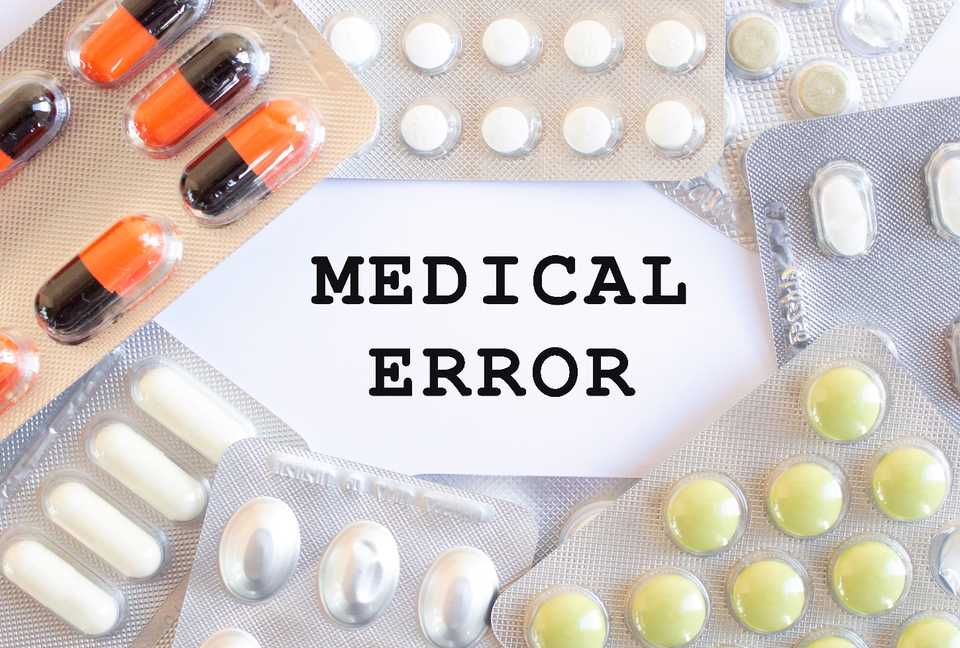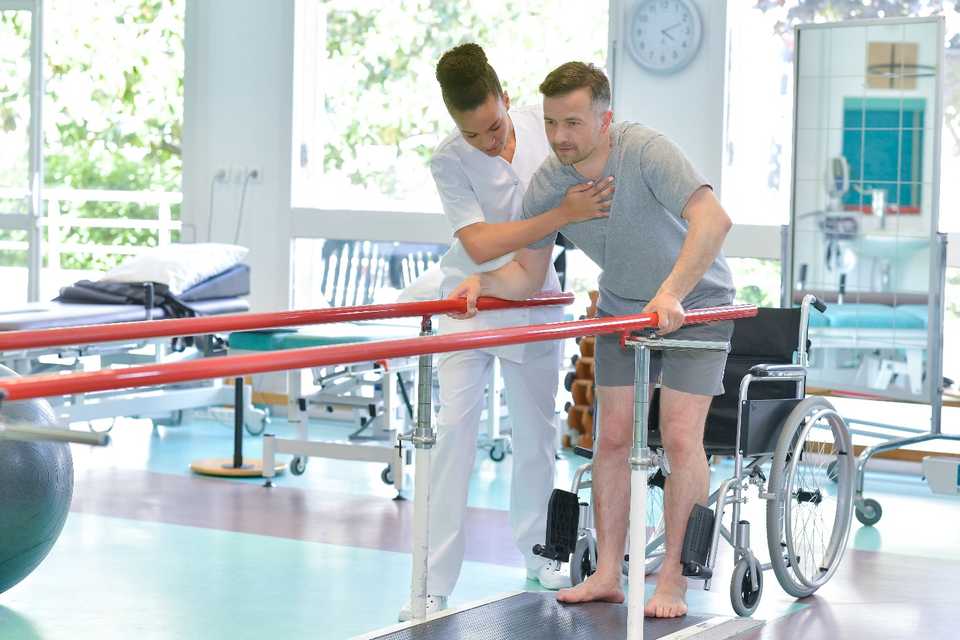Even though medical standards in the healthcare industry in Canada are high, Ontarians are not 100% immune from medical negligence.
Medical malpractice happens when a healthcare professional provides a substandard treatment that harms a patient.
Do you believe you are a victim of medical malpractice and want to exercise your right to recourse?

Find out more about what constitutes medical malpractice and learn what your options are.
Medical malpractice litigation is different from other types of lawsuits and involves powerful organizations, hospitals, insurance companies, and medical organizations like the Canadian Medical Protective Association (CMPA).
You will need excellent representation from an experienced medical malpractice lawyer who can hold those negligent in your care accountable!
Fill out the form on this page to connect with top medical malpractice lawyers in Toronto, free of charge!
What constitutes medical malpractice in Toronto?
Medical malpractice covers civil claims filed against doctors, nurses, and other medical workers and practitioners for negligence in the performance of their duties.
These medical professionals or healthcare providers have a legal duty to give the proper medical care to patients and people in need of emergency medical care.
Negligence can be a result of mistakes in diagnosing or treating patients or post-care and general health management.
Once a healthcare professional fails to give proper medical care, an individual can file a claim for damages for medical malpractice.
Two types of Medical Malpractice
Medical malpractice has two types – failure to get informed consent from the patient and negligence.

We will discuss the two types to give you a clear idea of medical malpractice to help you evaluate if you have grounds to file a claim.
Failure to get informed consent:
The principle that every adult of sound mind has the right to determine what can be done with his own body is a generally accepted one .
This means doctors and other healthcare providers cannot do any treatment, test, or surgery for a person without getting consent.
Based on common law in Ontario, any doctor must inform their patients in full about the risks in any treatment, test, or medical procedure before they agree to it. This is what is referred to as “informed consent”. Consent can be in writing or in verbal form.
Should any healthcare professional fail to do this, the patient can sue for medical malpractice.
It is not enough to get a patient to sign a consent form. The doctor must discuss what the procedure is about, how it is done, and the risks. He does not have to disclose everything that can go wrong but he must disclose the most significant risks. The patient must fully understand them to be able to give informed consent.
What about emergency procedures?
In cases of medical emergencies wherein the patient is not able to give consent, the doctor must do what is necessary without consent. For a medical situation to be considered an “emergency”, there must be an imminent threat to the patient’s health and life or there must be a demonstration of severe suffering.
Treatments under emergency situations must be restricted to what is necessary to prevent suffering or to save health, life, or limb.
In situations wherein the patient is unable to communicate, doctors also have a duty to verify any known wishes of the patient such as through advanced directives.
Once the patient regains the ability to provide consent, the doctor has a duty to obtain “informed consent” for additional treatments.
Assault and Battery Claims
Many cases regarding consent filed against doctors allege that discussions with the patient were inadequate.
Doctors can also be liable for assault and battery if no consent was given or if the treatment exceeded what the patient had agreed to. If serious misrepresentation was used to obtain the patient’s consent, an assault and battery claim against the doctor can be made.
What are the types of consent?
A patient’s consent to any treatment can be verbally expressed in specific terms or in writing. The clinical situation determines the approach required.
Implied Consent
Most things doctors do for patients fall under implied consent verbally or through behavior or the given circumstances. A patient who makes an appointment to see a doctor will answer questions about his medical history and submit to a physical examination.
In this situation, consent is implied. But to avoid any misunderstanding, a doctor can ask for consent to examine any “sensitive” areas such as the genitals, rectum, or breasts.
Implied consent can later become subject to argument. To avoid any doubts, consent is better expressed in writing or verbally.
Expressed Consent
Expressed consent may be written or oral. It must be obtained if the treatment could become more than mildly painful or if it has risks or could result in the removal of a bodily function. Consent can be adequately validated through notations by the doctor on the patient’s records.
Patients could change their minds later on so doctors know the importance of getting written consent, particularly for surgical and invasive procedures.
What age can a person give consent?
Legal age has become irrelevant in terms of giving consent to medical treatment. The law on consent has evolved to the extent that the principle of maturity has replaced chronological age.
The capacity of a minor in terms of physical, mental, and emotional state is considered to determine his appreciation of the nature and risks of a proposed procedure and his refusal thereof.
Some provinces and territories have codified laws on consent including a young person’s ability to consent or refuse treatment. It is only in Quebec that the age of consent for a young person is 14, below which the guardian or parent must give consent.
Medical Negligence

A doctor or any healthcare provider is considered negligent if the standard of care is not provided to a patient. Standard of care means what any other reasonable doctor would have done under the same circumstances.
If the negligent actions caused illness or injuries to the patient, the doctor or healthcare provider may be liable to pay damages.
A doctor cannot simply say he didn’t know any better or that he did his best. But it must be said that doctors can’t be held liable for all mistakes. Sometimes, doctors have to make quick decisions to save a life without all the information at hand. The law recognizes this but asks the question: “Would other reasonable doctors have done the same thing?”
Example Situation:
You see a doctor because of persistent headaches. The doctor orders some tests and based on the results, he concludes you suffer from migraines and prescribes medications.
If your condition persists and further examinations show you don’t suffer from migraines but something else, your doctor was not negligent and you cannot sue him for medical malpractice. In this situation, he exercised the standard of care even if the diagnosis was not correct.
3 Things Needed for a Medical Malpractice Case in Toronto

Cases for medical malpractice are very complex and medical professionals fight them furiously in court.
For a medical malpractice lawsuit to succeed, you need to hire an experienced lawyer with a good track record in handling similar cases.
What your lawyer must prove
- The doctor did not provide the standard of care expected of a reasonable doctor.
We require doctors to act with expertise. While medical decisions can later be wrong, any doctor must take steps within standards given a particular situation.
For instance, a birth injury case filed against a family doctor will be compared to other obstetricians and family doctors to see if they would have done the same thing.
It is also expected that if any doctor gets in over their head in a complex situation, they must call in a specialist. Midwives and nurses are also held to the standards of their profession.
- The failure to provide standard care must have a resulting injury.
The mere failure to provide standard care is not enough. Many people find this difficult to understand. We need to remember that the medical causes for injuries or even death can be caused by many factors which don’t always follow a straight line of cause and effect.
Thus, in a surgical procedure wherein a patient suffers complications or injuries, more medical evidence must be presented to prove that the doctor failed to provide the standard of care. It must be proven that his negligence directly caused the injuries.
- Damages
If the victim’s lawyer proves that the doctor failed to follow the standard of care, the court will then consider the damages that must be compensated. The damage must have been caused by the breach in standards.
Some cases involve “delayed diagnosis” and the assessment of damages is quite complex. As the patient is already ill at the time, he could still have suffered damages even with standard treatment. The question then would be, “what additional damage was done?” Endless arguments of medical experts from both sides can complicate the issue.
How to start a medical malpractice action

From the above, you have surely come to realize how complicated medical malpractice cases can be. This is why it is critical to have an excellent medical malpractice lawyer in Toronto handling your case.
Firstly, Find a lawyer to speak for you in court. At the initial consultation, a good lawyer can evaluate the grounds to file your claim and advice you on the next steps.
Connect with the right medical malpractice and personal injury lawyers near you using our short online form!
Examples of common medical malpractice cases

You may know it but some lawyers are highly knowledgeable of Canada’s medical system. They assist clients in Toronto and across Ontario to fight for victims of medical malpractice.
Below are examples of medical malpractice cases referred to our partner lawyers for litigation.
- Birth injuries;
- Hospital errors;
- Medical misdiagnosis;
- Pediatric malpractice;
- Obstetric malpractice/Spina bifida;
- Brachial Plexus Injury;
- Prenatal testing errors;
- Nursing errors;
- Prescription errors
- Inappropriate or unnecessary surgery
- Wrongful death
- Lack of informed consent
- Nursing home negligence
Have you or another family member been seriously harmed by the negligence or error of a medical professional?
Contact an experienced medical malpractice lawyer today by filling out our online form to compare multiple legal experts near you!
Who can be sued for medical malpractice in Toronto?

The consequences of medical practice can be devastating. It is time to take action and seek justice. The best medical malpractice lawyers in Toronto can help you hold negligent medical professionals accountable and obtain compensation for your suffering so you can move forward and get closure.
Who can be sued for medical malpractice in Toronto?
A patient or victim can sue any healthcare professional for medical malpractice including doctors, nurses, midwives, laboratory and other technicians, and other healthcare workers . Hospitals and nursing homes can also be sued.
If you want to know if you have grounds for a medical malpractice claim, Find a lawyer to give you legal advice by filling out the online form on this page, free of charge .
Time limit to start a medical malpractice lawsuit
In Ontario, including Toronto, medical malpractice action has a 2-year limitation period. This depends on the circumstances of the case.
Special limits may be considered for deceased individuals, minors, or those with legal disabilities.
After the 2-year limit has passed, you may be banned from filing a medical malpractice lawsuit. It is important to consult a lawyer as soon as possible if you are considering a medical negligence action.
The cost of medical malpractice lawsuits in Toronto

Are you worried about the cost of a medical malpractice action? You should know that many lawyers offer a free initial consultation to talk about your potential case.
Generally, medical malpractice lawyers will need a retainer fee to pay for the costs of investigating the case, particularly expert opinions.
Once the investigation has been completed and you wish to proceed with the action, lawyers can offer contingency-based fees which means you don’t pay after the initial retainer until you win the case or get a settlement.
If you win or receive a settlement, the lawyer gets a portion of the compensation . Know that if you lose, you could end up paying for the court expenses which could amount to thousands of dollars.
It is also good to know that some medical malpractice law firms operate strictly on a contingency basis which means you pay nothing until your case is resolved. The contingency fee is usually 30% of the total compensation you receive.
Contingency fees in medical malpractice cases help families and patients devastated by serious injuries to focus on healing and recovery.
Would you like to find a medical malpractice lawyer? Connect with experienced lawyers in your area by filling out our short online form.
Award for damages for Medical Malpractice
Canada’s hybrid system established by the national healthcare system essentially operates as private medical practices. Private practitioners like doctors and medical facilities must have medical liability insurance. This makes it possible for them to be sued for medical malpractice.

If medical negligence is responsible for your illness or injury, the court can order the hospital, doctor, or healthcare provider to pay for damages.
These damages can include lost earnings, medical and other expenses, pain and suffering, and loss of enjoyment of life.
We have explained in the section above the requirements for a medical malpractice lawsuit. But there is another caveat - the courts have strict limits on liability awards.
Cap on Medical Malpractice Awards for Damages
| Type of damage | Cap on Award |
|---|---|
| Pain and suffering Enjoyment of Life Loss of life expectancy | $418,000 (adjusted for inflation in 2022) |
| Extraordinary Circumstances | $300,000 |
| Punitive damages | $1,000,000 |
But in addition to awards for damages to victims or their families, other compensation can be given including:
- Home Accessibility Modifications or Purchase: Widened doorways, elevators, custom bathrooms, etc.
- Attendant care services: On top of those paid for by the provincial government such as private nursing, rehabilitation support workers, disability support workers, or personal support workers.
- Medical and Rehabilitation Services: Physiotherapy, occupational therapy, speech-language therapy, etc.
Would you like to know if you have grounds for a medical malpractice case in Toronto? Every case must be assessed individually. Medical malpractice lawyers can inform you of the merits of the case and your rights and options.
Find the right lawyer to seek the compensation you deserve for medical negligence. Compare and match with a medical malpractice lawyer near you using our short online form.
Speak with a Medical Malpractice Lawyer in Toronto
If you or a loved one needs help with a medical malpractice case, you are in the right place.
JuriGO is a vast network of over 500 legal professionals with experience in personal injury litigation and medical malpractice cases.
They will gladly assist you get in getting financial compensation for your suffering and losses , and hold any medical practitioner accountable for medical negligence.
Compare lawyers with medical malpractice experience in your area with one short online form with no obligation today!